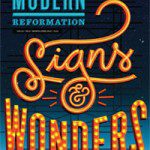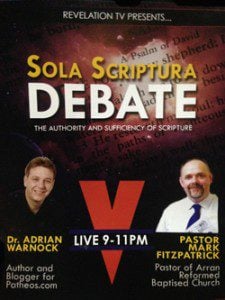the blue fish is joining me in blogging through 1 Cor 12. He says it right about v1-3: “Essentially, Paul wants his reader to know that being spiritual is about proclaiming Jesus as Lord. Put another way: Being spiritual, is being gospel. We cannot consider anything about gifts of the Spirit without this as the foundation. No gifts will be genuinely manifest without the Holy Spirit. And the Spirit is only sure to be present when there is genuine confession of Jesus as Lord.”
John Stott: in an old sermon about these verses asked “Spiritual gifts – what’s the big deal?” He spoke about how baptism in the Holy Spirit is a unifying experience, but somehow the fact that he didnt go on to explain what that meant lead me to think that he doesnt share my view of it. Stott was right to say that the Holy Spirit is the force which as he puts it “illumines” us to see Jesus as Lord.
Stott, asks 3 questions of the gifts – “What are they?” “Where do they come from?” and “What are they meant for?”. He is right to emphasise that there are not only nine gifts as there are 5 other lists of spiritual gifts in the New Testament which do not entirely overlap – there are according to Stott at least 21 gifts of the Holy Spirit not all of which are “supernatural”.
Stott immediately jumps to the conclusion that some of these gifts are not available today. In case anyone thinks it is a new argument, he builds his cessationism on the alleged absence of Apostles today. (Regular readers will know I do not concede this point, believing that the biblical definition of apostle is different to the popular Christian one)
Stott doesnt really give any solid biblical arguments at least in this sermon for this cessationist view nor his criticism of a charismatic view of Baptism of Holy Spirit. I had hoped to find some biblical exposition that would disagree with my position to intereact with in Stott’s sermon, but sadly there wasnt any. If anyone knows of a source for me to find Stotts positon more clearly defined and explained from the bible, I would be greatful to find it. Stott is certainly a man of God who I honour as a great preacher and I would love to listen to or read his views.
Interestingly, towards the end of his message he did admit that further “religious experiences” are possible for Christians but he didnt seem to think that these should be pursued, nor did he explain his understanding of them or how they should look in practice.
The chapter that we have set before us is clear that these gifts are to be “earnestly desired” (v31). I find it strange that there are some today who are not theolocially cessaionist and yet do not actively seek or pursue spiritual gifts.
The passage here goes on to explain why gifts are so important. They are important because they demonstrate the divine plan for us to rely on each other. God has given “diverse gifts” to each of us to ensure that others are built up – gifts serve the “common good”.
How can we read these words and not conclude that gifts should be sought after and desired today? I suspect that for some it is a lack of experience of what gifts can look like. I do not think there is any substitute for finding a church where they are practiced according to wise discernment and at least visiting it. It is going to be hard for me to really get accross the experience of gifts in written form, but I will try. In the meantime, I leave you with these words of Paul which should leave you hungry not just to read about gifts but rather to experience them for yourself.
Now there are varieties of gifts, but the same Spirit; and there are varieties of service, but the same Lord; and there are varieties of activities, but it is the same God who empowers them all in everyone. To each is given the manifestation of the Spirit for the common good.












